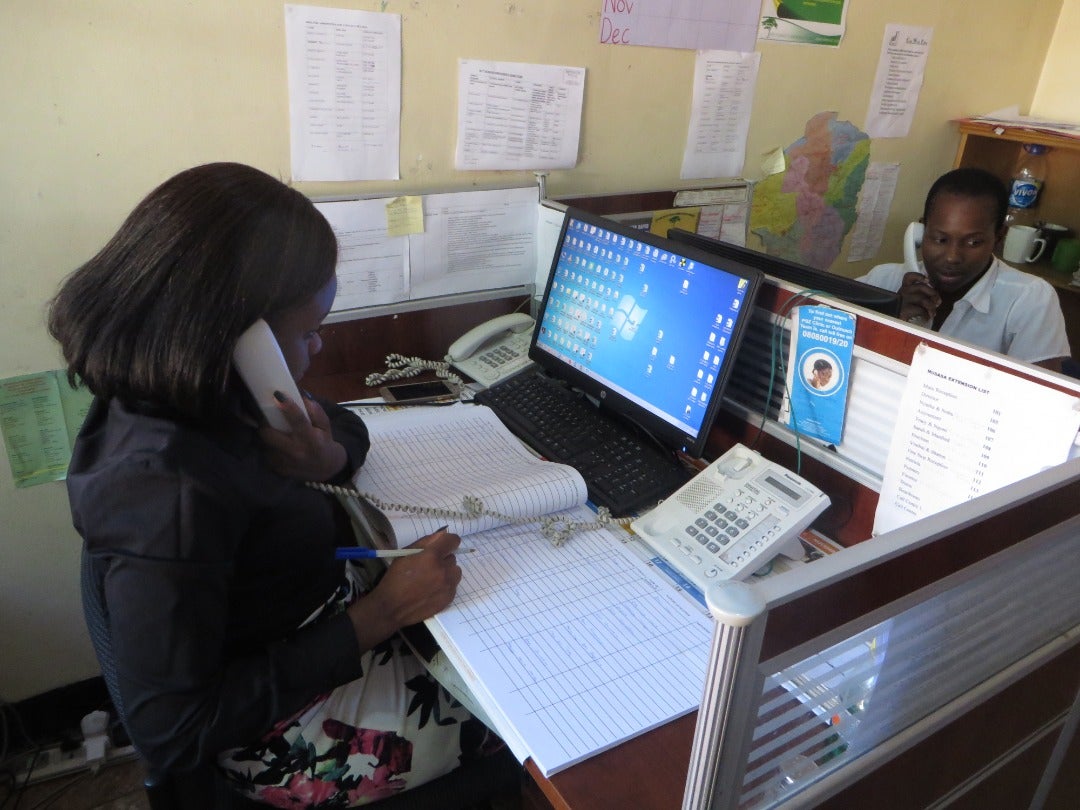“We had a client from Gokwe, who had been married for 4 years and had been experiencing physical abuse at the hands of her husband. At some point, she had miscarried due to the continued abuse. According to the client, she had heard about Musasa Project and its support for Gender Based Violence (GBV) survivors and had tried to reach out without success due to movement restrictions during the COVID-19 lockdown as well as mobile network challenges.”
During the lockdown period, survivors are unable to travel to access services at static facilities due to transport unavailability and because Musasa has expanded its hotlines, I am glad that survivors can now call in and access GBV services on the call. In the case of the client in Gokwe, soon after her call, we immediately contacted the Gokwe Shelter Matron who took her in, where she is now safe and receiving the appropriate services,” says Musasa Project counselor, Tsungai Gadaga says.
Since the beginning of the lockdown, on March 30th, the Musasa hotline has registered over 75% increase in calls compared to pre-lockdown trends. 90% of cases assisted through the hotline are cases of intimate partner violence, which is increasing during this time, as survivors are locked down with their perpetrators, with little chances to get away and seek help.
In an effort to encourage and make it easier for women and girls seeking to report and access GBV services during and beyond the COVID-19 lockdown, the Spotlight Initiative has supported implementing partner Musasa to expand its hotlines to include all local networks to enable everyone including those in ‘remote areas’ where a certain network reception may not be as strong or non-existent.
Musasa Project with support from the United Nations Population Fund (UNFPA) under the Spotlight Initiative recently expanded their hotlines with an additional 4 lines which are managed by specialized counsellors who provide remote psychosocial support through voice, text and/or whatsapp – to survivors. Two of the extra 4 lines also provide dedicated remote PSS to GBV service providers and frontline care workers who, besides being there to assist others, may also face challenging times including overload and mental health distress in the pandemic context.
The text option in particular has demonstrated its efficacy for those cases where making a complain call whilst sitting next to your perpetrator is not a choice.
Sharon Matingwina, Musasa Project’s Programs Officer says the expansion of the hotlines has strengthened the provision of essential services provided by Musasa during the COVID-19 lockdown where movement has been restricted.
“We only had one toll-free hotline – an Econet platform for survivors and those seeking GBV services, this was a disadvantage to other users who do not use Econet, for example in areas like Defe in Gokwe, the only network service available is Telecel. The introduction of hotlines on all available mobile networks will ensure that survivors can access services in the comfort of their homes and the privacy they deserve,” Sharon says.

Musasa notes that while it may still be too early to make conclusions on the success of the hotline expansion, counselors at the call centre have begun noting a change – an increase in calls from areas that were previously not part of the recorded areas. Between 1 April 2020 and 20 June 2020, Through the Spotlight initiative support, a total of 926 survivors have accessed the hotline and were provided with remote psychosocial support.
“I think it is much easier for clients to call the hotline using their own mobile phone eliminating discomfort normally associated with survivors who may be using someone else’s phone to report abuse,” Tsungai says, adding that “it is indeed quite a huge relief to know that everyone is now being covered.”
GBV remains a huge problem in Zimbabwe with statistics indicating that it affects at least 1 in 3 women. The Ministry of Women Affairs, Community and Small and Medium Enterprises Development says COVID-19 lockdown and movement restrictions have worsened the risk of exposure to GBV as women and girls are in confined spaces with potential perpetrators. UNFPA and Musasa are making sure that the Spotlight Initiative, through the hotline, will continue to create platforms for women and girls to communicate their need for services.
The expansion of the hotline is funded by the Spotlight Initiative – a joint UN-EU initiative set up by the European Union to end the problem of GBV in Zimbabwe.


